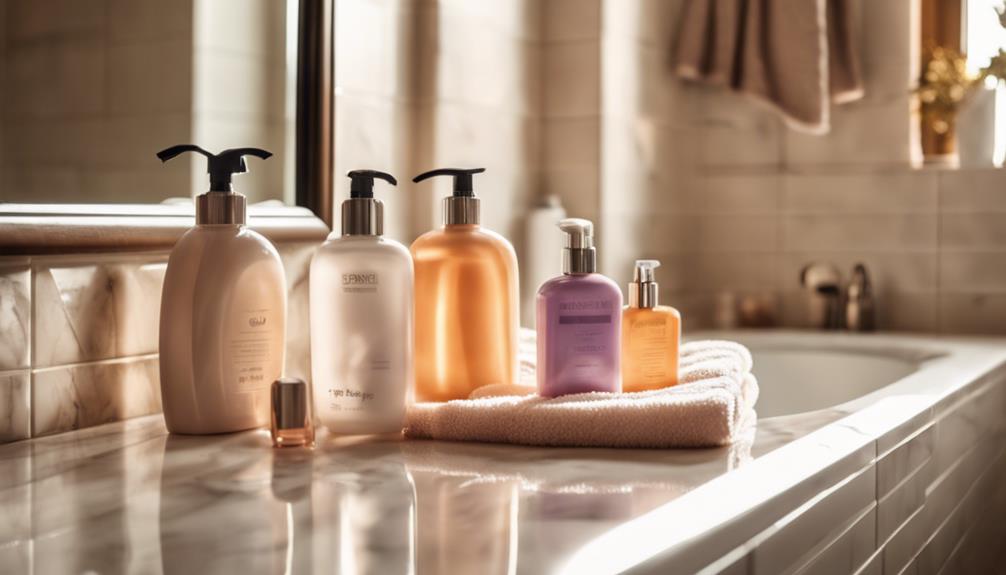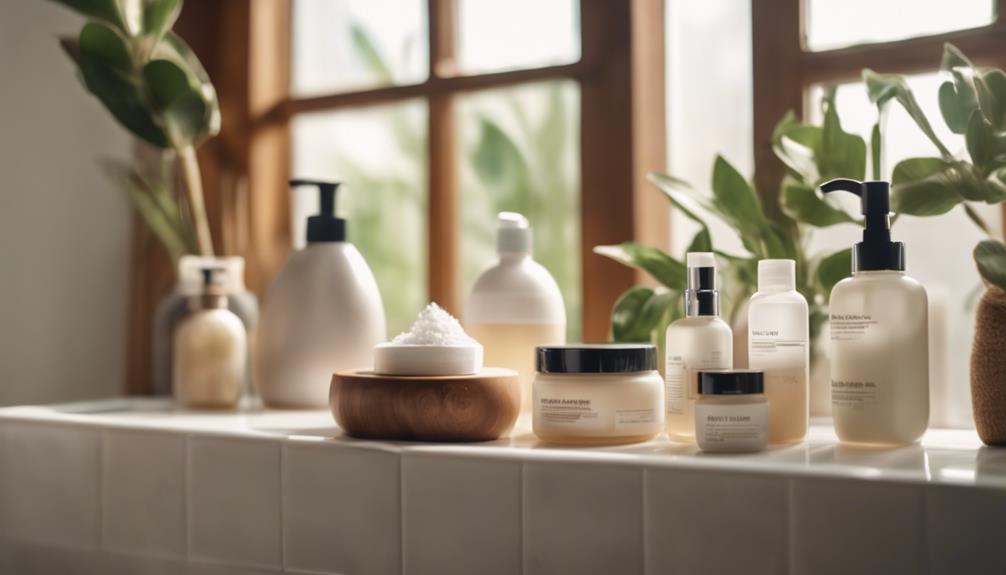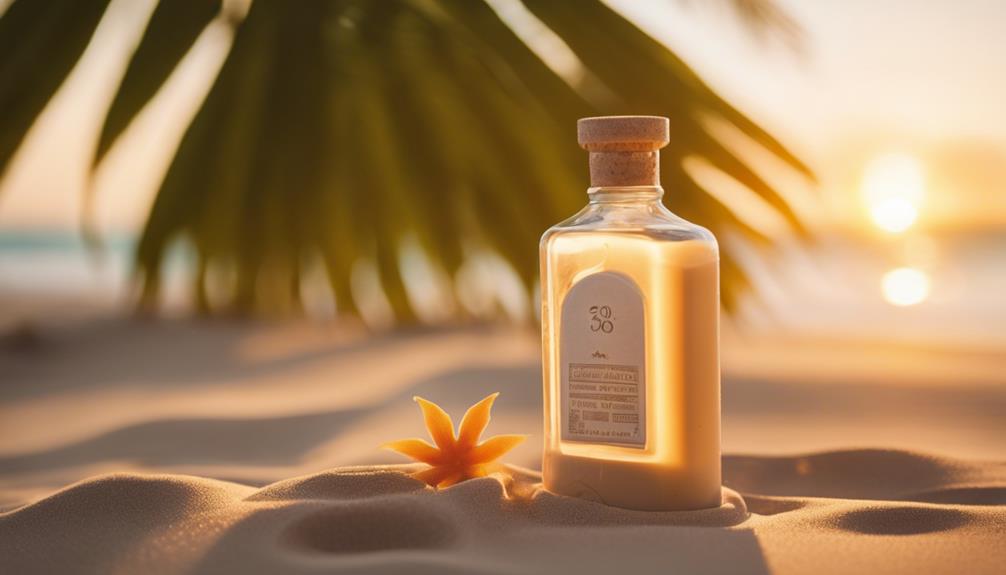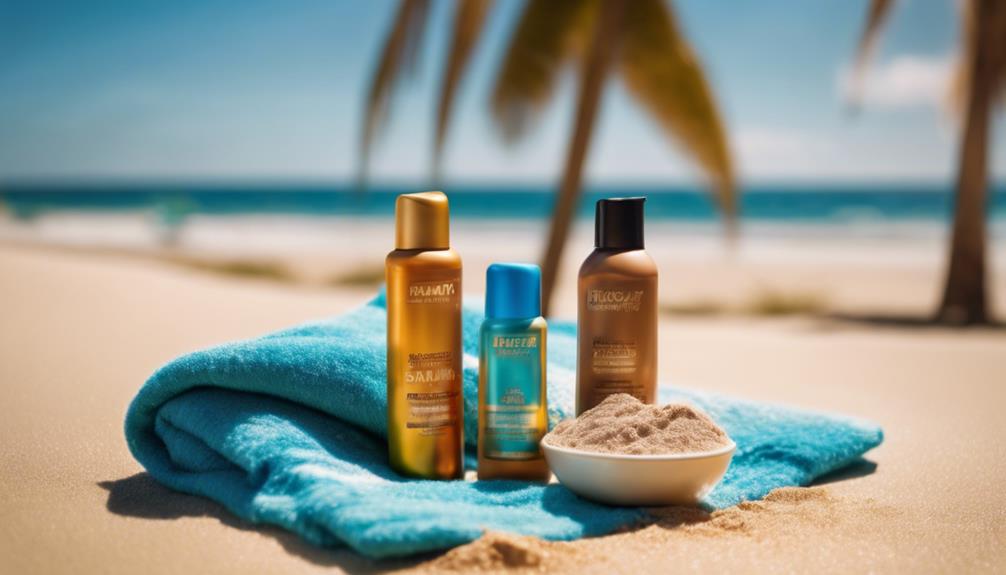Discovering the ideal indoor tanning lotion is akin to finding the perfect pair of cozy socks—extremely important! First and foremost, consider your skin type: fair skin benefits from lighter bronzers, whereas olive skin thrives with deeper shades. Hydration is crucial, as dry skin can result in a patchy tan disaster. And of course, a pleasant scent is a must-have for a great tanning session! Whether you prefer tropical or fruity fragrances, the key is to enjoy the experience. So, explore high-quality options for optimal results, and pay attention to recommended lotions that suit your needs. Ready to shine? There’s more to discover! Additionally, consider exploring natural tanning lotion alternatives for a more gentle, eco-friendly approach to bronzing. These products often contain botanical ingredients that nourish and shield the skin, promoting a healthy and radiant glow. Remember, your indoor tanning lotion should not only boost your tan but also nurture your skin. Therefore, take your time to find the perfect match for a flawless, sun-kissed appearance.
Key Takeaways
- Identify your skin type to choose the right bronzer level for optimal tanning results.
- Decide between quick tan and gradual options based on your tanning goals.
- Consider scent preferences to enhance your tanning experience and make it enjoyable.
- Look for moisturizing ingredients to keep your skin hydrated and prevent dryness during tanning.
Key Considerations for Tanning Lotions
When choosing a tanning lotion, it's essential to evaluate your skin type and specific tanning goals to find the perfect match.
Think about whether you want a quick tan like a lightning bolt or a slow, sun-kissed glow. Do you prefer a lotion that smells like a tropical vacation or something more subtle?
Also, check for bronzers and hydrating ingredients; you don't want your skin feeling drier than the Sahara! If you have any skin conditions, look for formulas that cater to those needs.
Remember, the right lotion can make all the difference between looking like a golden goddess or a streaky mess.
Understanding Your Skin Type

Knowing your skin type is key to selecting the right tanning lotion and ensuring the best results without unwanted reactions. Think of your skin as a unique canvas; the right lotion can enhance its beauty! Here's a quick guide to help you choose wisely:
| Skin Type | Best Lotion Type |
|---|---|
| Fair Skin | Low bronzer levels |
| Medium Skin | Medium bronzers |
| Olive Skin | Higher bronzer levels |
| Sensitive Skin | Gentle, fragrance-free formulas |
| Dry Skin | Creamy, moisturizing lotions |
Importance of Hydration

Hydration plays an essential role in achieving a beautiful, long-lasting tan while keeping your skin healthy and radiant. You wouldn't want to bake a cake without enough moisture, right? The same goes for your skin! Proper hydration guarantees your tan lasts longer and looks more vibrant.
Here are three reasons why hydration is vital for your tanning journey:
- Prevents Dryness: Hydrated skin is less likely to flake, which means your tan won't fade unevenly.
- Enhances Results: Well-hydrated skin absorbs tanning lotions better, giving you that gorgeous glow you crave.
- Boosts Health: Moisturized skin helps maintain elasticity, so you can flaunt that tan with confidence!
Scent Preferences in Tanning
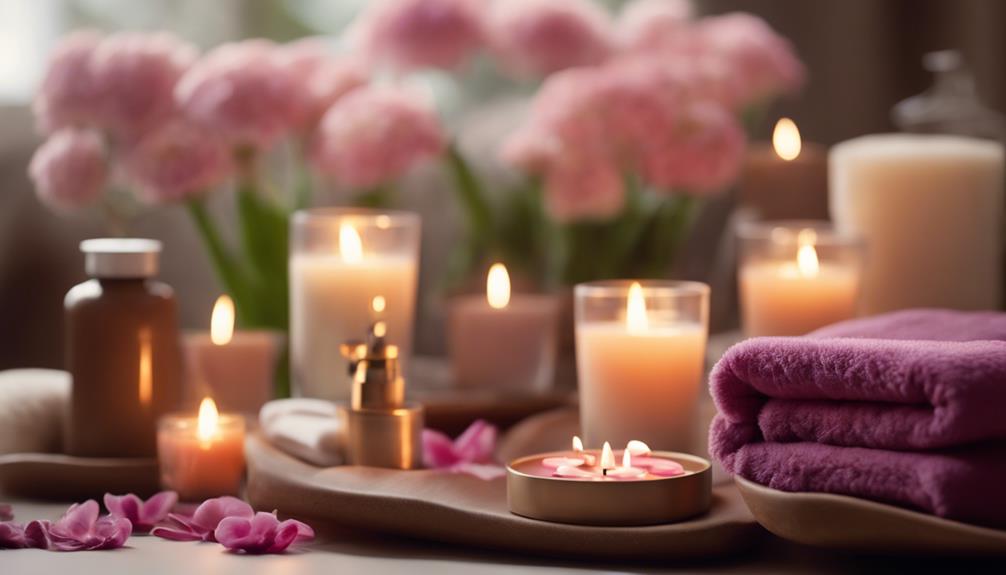
Scent preferences can greatly enhance your tanning experience, making the process not only effective but enjoyable as well.
Imagine slathering on your lotion and being greeted by a delightful tropical aroma! Isn't that way better than a strong, overpowering scent that makes you want to hold your breath?
You might love fruity scents that remind you of summer, or maybe you prefer something floral and fresh. Picking a lotion with your favorite fragrance can make each tanning session feel like a mini-vacation.
Just think about it: when you smell something nice, it can lift your mood and make you feel fabulous! So, why not choose a tanning lotion that smells as amazing as the results you're hoping for?
Benefits of Premium Lotions

Investing in premium tanning lotions often leads to more noticeable results and improved skin health due to their advanced formulations. You might wonder why spend a little extra, right? Well, here are some great reasons:
- Unique Ingredients: Premium lotions often contain special tanning accelerators and skin-nourishing goodies that help your skin glow.
- Better Results: You're likely to see a richer, deeper tan that lasts longer, making your investment totally worth it.
- Skin Care Benefits: These lotions usually include moisturizers and antioxidants, which keep your skin looking healthy and vibrant.
Application Techniques

To achieve the best tanning results, apply the lotion liberally and evenly across your skin. Think of it like frosting a cake—smooth and thorough! Don't forget to wash your hands afterward, or you might end up with orange palms instead of a sun-kissed glow. Reapply during your tanning sessions to keep that luscious look going strong. Remember, moderation is key; overexposure to UV light can lead to burns, and nobody wants that!
Here's a handy table to help you remember:
| Step | Tips |
|---|---|
| Application | Go for a generous amount! |
| Hand Washing | Clean up to avoid stains! |
| Reapplication | Keep your tan fresh! |
Now, go get that glow!
Recommended Tanning Lotions
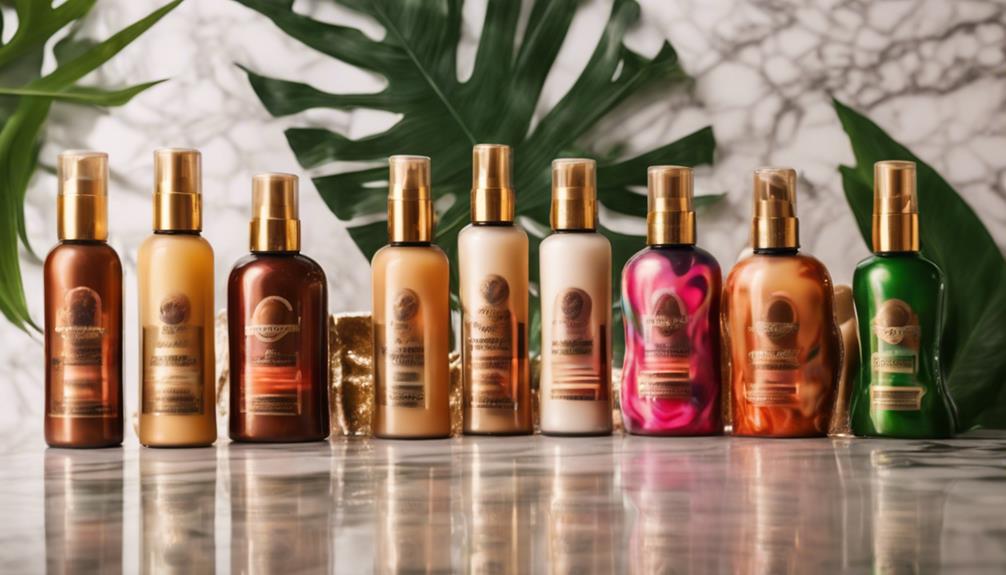
When choosing the right indoor tanning lotion, it's essential to take into account products that not only match your tanning goals but also cater to your skin type for ideal results.
Here are three fantastic options you should consider:
- b.tan UV Tanning Bed Lotion: This lotion has x2000 tanning intensifiers and mango butter for a tropical feel.
- Ed Hardy Coconut Kisses Golden Tanning Lotion: With a special formula for tattoo fade protection, it's like sunscreen for your ink!
- Australian Gold Rapid Tanning Intensifier Lotion: It works fast with antioxidants, so you can get that sun-kissed glow in no time.
Choosing the right lotion can make your tanning experience fun and effective, so pick one that excites you and get glowing!
Gradual and Sunless Options
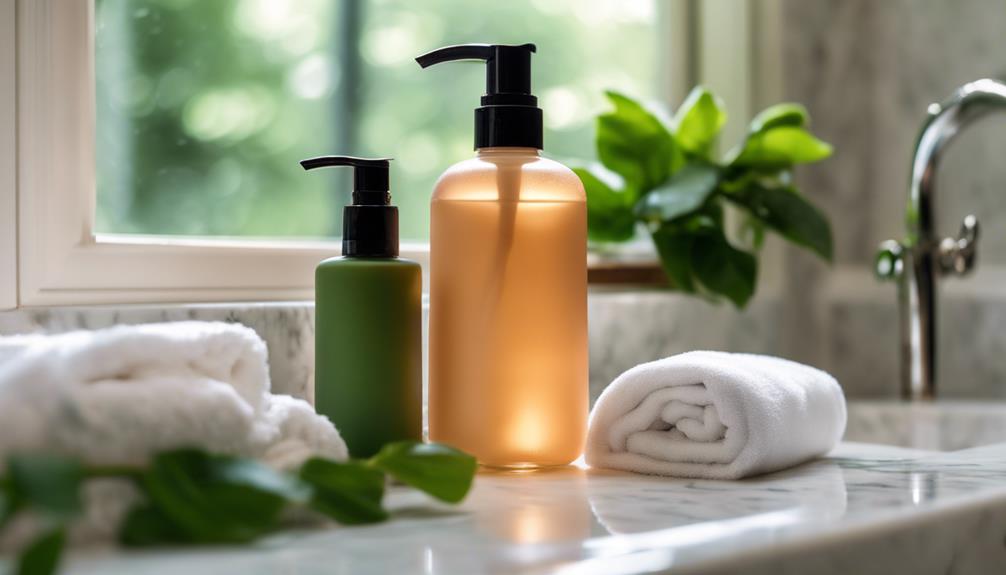
Exploring gradual and sunless tanning options can provide a safe and effective way to achieve a glowing complexion without the risks associated with UV exposure. Many products on the market offer customizable color intensity, allowing individuals to build their desired tan over time. For those transitioning from UV-based methods, incorporating indoor tanning session tips can help ensure a smooth and even application of sunless tanning products. Additionally, maintaining proper skin hydration and exfoliation is essential for achieving a natural-looking, streak-free glow.
Imagine waking up to a sun-kissed glow, all thanks to products like self-tanning lotions! These options let you build your tan slowly, which means you can avoid those scary orange mishaps.
For instance, GLEOW Self Tanning Cream is a fantastic choice, giving you a streak-free tan while nourishing your skin. Plus, with lotions like Devoted Creations Vacay Vibes, you're not just getting color; you're hydrating too!
Frequently Asked Questions
Can I Mix Different Tanning Lotions for Better Results?
You can mix different tanning lotions for potentially better results, but be cautious. Combining products might lead to uneven application or unexpected reactions. Test a small area first to guarantee compatibility with your skin.
How Often Should I Apply Tanning Lotion for Optimal Results?
Did you know applying tanning lotion every 2-3 days can maintain your tan's vibrancy? For best results, reapply your lotion regularly, especially after swimming or sweating, to guarantee an even, long-lasting glow.
Are There Any Side Effects of Using Tanning Lotions?
Yes, there can be side effects from using tanning lotions, including skin irritation, allergic reactions, or uneven tanning. It's essential to patch test new products and choose formulations suitable for your skin type.
Can Tanning Lotions Expire or Lose Effectiveness Over Time?
About 50% of users don't realize that tanning lotions can expire. If they're past their expiration date or stored improperly, they can lose effectiveness, resulting in uneven tans or skin irritation. Always check the label!
What Ingredients Should I Avoid if I Have Allergies?
If you have allergies, avoid ingredients like fragrances, parabens, and certain oils. Always check labels for allergens and consider patch testing new products to prevent reactions and guarantee your skin stays safe and healthy.
Conclusion
So, whether you're dreaming of a deep, sun-kissed tan or just a subtle glow, finding the right indoor tanning lotion makes all the difference.
It's like choosing between a bold adventure or a cozy staycation—both have their perks!
Remember, your skin deserves the best, so pay attention to hydration, scents, and that perfect formula.
With the right products and techniques, you'll be strutting around with confidence, showing off your radiant skin in no time!
